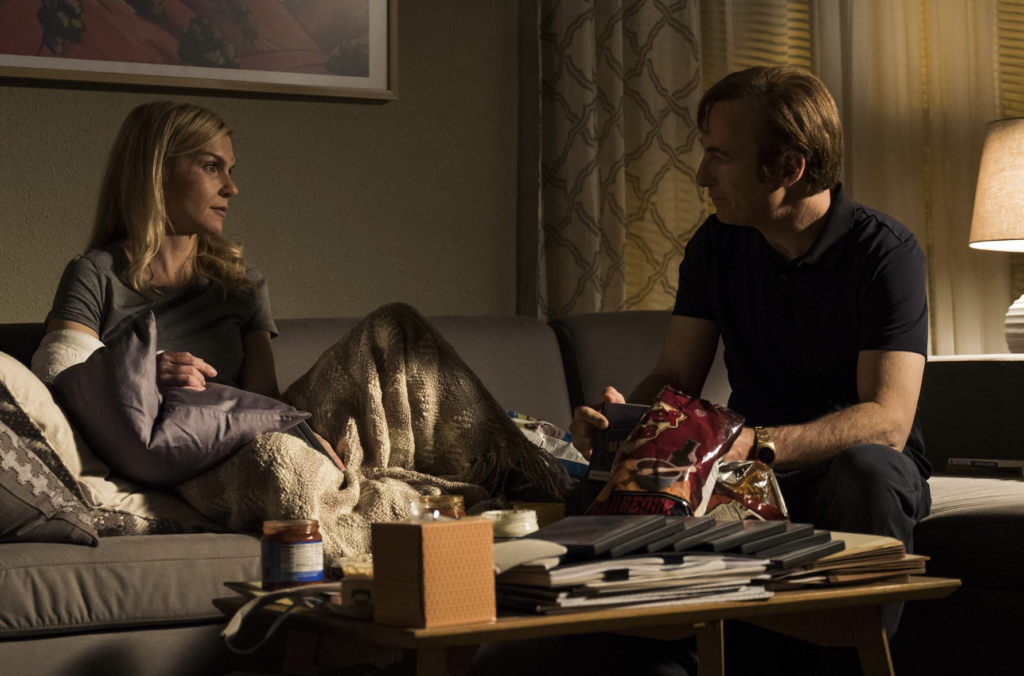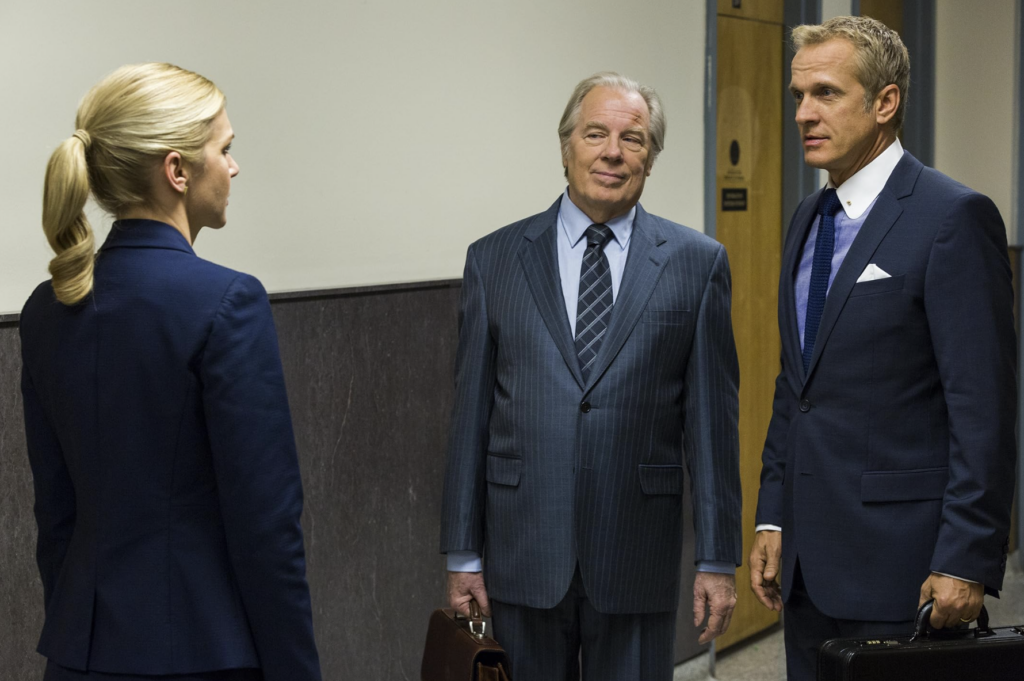
I travel in worlds you can’t even imagine. You can’t conceive of what I’m capable of — I’m so far beyond you, I’m like a god in human clothing. Lightning bolts shoot from my fingertips!
Better Call Saul, a highly acclaimed prequel to the iconic series Breaking Bad, has carved out its niche in the television landscape through its sophisticated narrative style and deep character exploration. Set in the years before Walter White’s transformation into Heisenberg, the series meticulously charts the evolution of the anti-hero protagonist Jimmy McGill, portrayed by Bob Odenkirk, into the morally ambiguous lawyer Saul Goodman. Unlike the explosive arcs of Breaking Bad, Better Call Saul excels in its slow-burn exploration of characters and morality, crafting an intricate tapestry of human emotions and ethical dilemmas. This deliberate pacing immerses the audience in the world of Albuquerque’s legal underbelly, building tension gradually. It allows viewers to savor the intricacies of the plot and the depth of the characters, focusing on the nuances of everyday life—the small decisions, the moral quandaries, and the consequences of choices. Better Call Saul isn’t just about lawyers or criminals; it’s a reflection of the moral ambiguities that permeate real life. The show masterfully explores the idea that good and evil aren’t black and white. Each character faces their own moral dilemmas, and the choices they make often lead them further away from their initial intentions. The series poses uncomfortable questions: What are the limits of our ethics? How far are we willing to go to achieve our goals?
Jimmy McGill’s transformation into Saul Goodman in Better Call Saul is one of the most compelling character arcs in television history. At the start of the series, Jimmy is trying to escape his past as “Slippin’ Jimmy,” a small-time con artist. He works tirelessly to build a legitimate career as a lawyer, often overshadowed by his brother Chuck, a highly respected attorney. Despite his efforts, Jimmy is constantly undermined by Chuck’s lack of faith in him, which becomes a driving force in his eventual moral decline. Jimmy’s moral decline is gradual and nuanced. Initially, his schemes are relatively harmless, often motivated by a desire to help others (e.g., his elderly clients) or to level the playing field against more powerful adversaries. However, as the series progresses, his actions become increasingly self-serving and destructive. The line between “helping” and “hurting” blurs, and Jimmy begins to justify his behavior by convincing himself that everyone is out for themselves. The emergence of Saul Goodman is a defense mechanism, a way for Jimmy to distance himself from the pain of his past and the guilt of his actions. As Saul, he adopts a flashy, amoral persona that allows him to thrive in the criminal underworld. This transformation is both tragic and inevitable, as it represents Jimmy’s surrender to his worst instincts and his abandonment of any pretense of being a “good” person.
Does this steaming pile of crap scream payday to you, huh?! The only way that entire car is worth $500 is if there’s a $300 hooker sitting in it!
Kim Wexler, masterfully portrayed by Rhea Seehorn, emerges as a nuanced character in her own right, reflecting the show’s commitment to intricate character development. At the start of the series, Kim is portrayed as a diligent, ethical lawyer who works hard to build her career. She is a stabilizing force in Jimmy’s life, often encouraging him to stay on the straight and narrow. However, as the series progresses, it becomes clear that Kim is not just a foil for Jimmy but a character with her own desires and flaws. Her attraction to Jimmy’s con artist tendencies reveals a darker, more rebellious side to her personality, which she initially suppresses but gradually embraces. Kim’s moral descent is subtle and layered. Unlike Jimmy, whose transformation into Saul Goodman feels almost inevitable, Kim’s choices are more surprising and tragic. She begins to engage in increasingly risky and unethical behavior, not out of necessity but because she finds it thrilling and empowering. Her involvement in schemes like the plot against Howard Hamlin demonstrates her capacity for manipulation and her willingness to cross moral boundaries, all while maintaining a facade of professionalism and respectability.
Jimmy’s brother, Chuck McGill, played by Michael McKean, is portrayed as a highly respected lawyer battling his own demons, particularly a self-diagnosed condition he believes to be electromagnetic hypersensitivity. His complex relationship with Jimmy combines elements of sibling rivalry and an almost paternal influence while embodying themes of loyalty and personal integrity. Chuck’s unwavering adherence to legal ethics and his refusal to acknowledge Jimmy’s abilities create a pivotal point in the series. His character not only significantly influences Jimmy’s path by directly impacting key life decisions but also embodies the broader themes of ambition, identity, and morality.
Flashbacks and flash-forwards are essential tools in Better Call Saul, adding layers of complexity to its non-linear storytelling. Flashbacks are used extensively to delve into Jimmy McGill’spast, revealing key events that shaped his personality and moral compass. For instance, scenes from his days as a con artist with Marco or his troubled relationship with his brother Chuck offer crucial insights into his transformation. The black-and-white flashforward sequences set in the post-Breaking Bad timeline provide a glimpse into Jimmy’s life as Gene Takavic, a Cinnabon manager in Omaha. These segments create a sense of inevitability and foreboding, as viewers know that Jimmy’s choices will eventually lead him to this isolated and paranoid existence. Better Call Saul not only builds upon the foundation laid by Breaking Bad, introducing new characters and enriching existing ones like Gus Fring, but it also expands the thematic concerns of the universe, exploring the thin lines between legality and morality. While Breaking Bad is credited for revolutionizing the thriller genre with its innovative storytelling, Better Call Saul painstakingly narrates the shadow under the morally grey.
When you are sitting in your shitty nursing home, and you’re sucking down your jello night after night for the rest of your life, you think of me. You twisted fuck.
